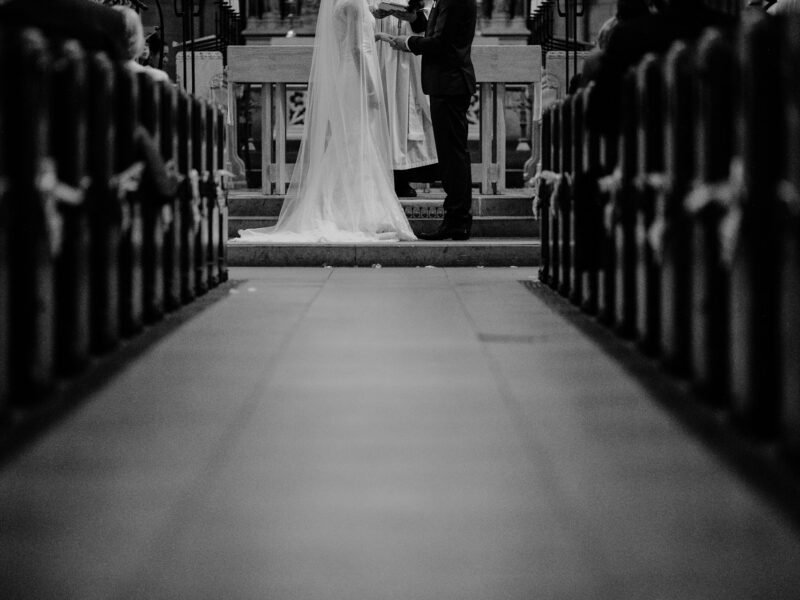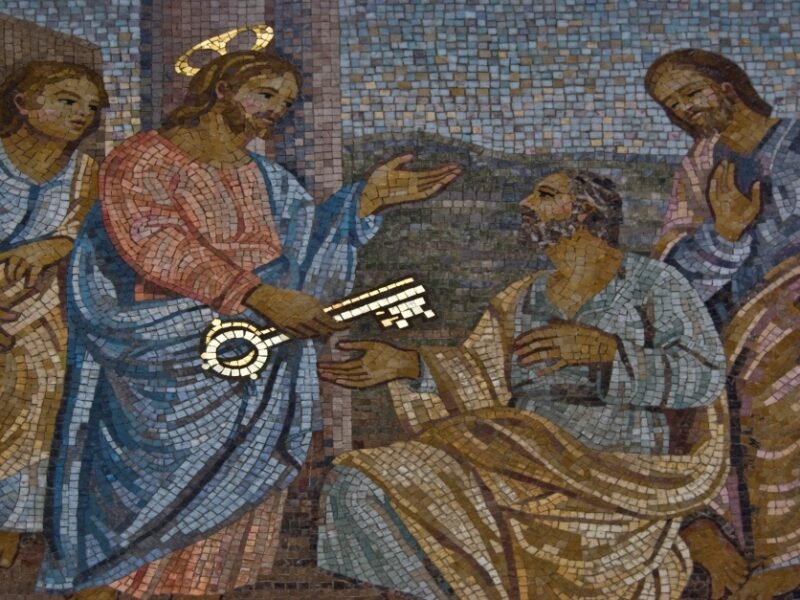The Need for Catechesis
I call upon our parishes to strengthen all their catechetical and educational programs. Our world is Biblically illiterate. Even many in the church do not know the Scriptures. David Younts writes in his book, Beggaring Belief, “Pollster George Gallup Jr. has long referred to America as a ‘nation of biblical illiterates.’ Only four in ten Americans know that Jesus delivered the Sermon on the Mount. A majority of citizens cannot name the four Gospels of the New Testament. Only three in ten teenagers know why Easter is celebrated. Two-thirds of Americans believe there are few, if any, absolute principles to direct human behavior. A new poll by the Barna Research Group suggests that religious illiteracy has increased . . . A similar number of born-again Christians deny the existence of the Holy Spirit and Satan. One in five denies Jesus’ physical resurrection and believes he was a sinner. Earlier surveys of mainline . . . [denominations] revealed that barely half . . . believe in the devil, but 56 percent . . . believe in UFOs. One-third. . . have faith in astrology. While nearly three-fourths of all Americans believe in hell, hardly any believe it to be their likely destination in eternity. . . Former Secretary of Education William Bennett concludes that ‘We have become the kind of society that civilized countries used to send missionaries to.’” Bennett is correct.
Therefore, as part of my exhortation for catechetical outreach, I call for expanded educational efforts such as men’s, women’s, and couples Bible studies, new member and inquirer classes, youth ministries, and extensive confirmation programs.
Founding Classical Anglican Schools
I even ask every vestry and congregation in our jurisdiction to consider whether your parish might be able to have some kind of Christian school, whether pre-school, primary, or secondary level of parochial education. The pandemic has created a great moment of opportunity for Christian education. Many public-school systems have alienated Christian and non- Christian families by their approach to the pandemic. Then, there is even the more serious problem of how the public-school systems have now turned to indoctrinating our children with secular, and even sexual and pagan world views antithetical to the Christian Faith.
I encourage you to talk to our important Anglican School Association or the clergy and laity in parishes that have schools. What they have discovered is, “If you teach their children they will come.” The school families may not join the parish, but schools transform a parish into a community of new, young families. The residual effects of this, the Celtic Christian principle of evangelism, is the possibility to belong before believing.
And the more front porch ministries in a parish to which visitors may belong- before-believing will eventually translate into growth.
Strengthening Orthodox Anglican Theological Education
In the last triennium we have begun the process of unifying theological education. I formed a Sub-committee to Unify Theological Education to this end with the acronym SCUTE, under the oversight of the Theological Commission. I also set apart a committee within SCUTE chaired by the Rev. Canon Dr. Jonathan Riches, to determine options and the best way to bring greater unity without losing the important identity of each of our theological institutions. As a beginning to this unification, the deans and administrative staffs of each of our seminaries have begun to meet as part of SCUTE. The deans of each seminary now serve on each other’s boards. Furthermore, you will see in Dr. Riches’ report attached to the Theological Commission Report that we are making other significant progress. The best option for greater unification at present seems to be where Reformed Episcopal Seminary in Philadelphia might be able to offer an accredited degree for students at our other seminaries on their campuses using all faculty members where possible. The existing programs at our seminaries, however, will still be offered and continue unchanged. Each seminary’s own identity will be maintained. This option has been approved by the Theological Commission as well as the individual boards. However, the proposal has only been approved in principle. The Association of Theological Schools will need to approve RES offering this program, and many details will need to be worked out. But this at least is a big start. Pray for us.
Flourishing of Deaconesses
We have been so encouraged by the number of women who have become deaconesses, as well as other ladies who have entered postulancy. We now have over twenty deaconesses and postulants in the REC, with many more discerning and seeking approval for candidacy. These postulants are also participating in our Deaconess programs at our seminaries.
The text of this article is taken from the Reformed Episcopal Church Presiding Bishop’s Report given on June 9, 2021. The editors of The North American Anglican have arranged the content and added headings for its appearance in this new format.
———————————————————————————————————————————-
Resources for Renewing Anglican Education
Christian schools in the Anglican Schools Association seek to educate and nurture children by focusing on the whole person, rooted in Christian formation. As part of their mission, the culture in such schools must incarnate a love of truth, beauty, and thereby nurture piety, virtue, and grace in its pupils, for the culture of a school educates as much as its curriculum.
Resources for Classical Anglican Schools can be found here.
Cranmer Theological House is distinguished by its strong commitment to the historic Anglican formularies: Holy Scripture as the infallible Word of the living God, the historic Thirty-Nine Articles of Religion, and the worship and polity of the traditional Book of Common Prayer. As such, CTH strives to produce Biblically grounded, orthodox graduates who are excellent pastors, exceptional preachers, exemplary deacons and deaconesses, and well-equipped lay people.
Learn about CTH’s programs here.
Traditionally recognized in Anglican circles by her distinctive blue habit with its white collar and unique cross, and oftentimes veiled, a Deaconess is a woman who has been called to lay ministry in the Church. She has been educated and trained to fulfill the duties of her vocation. She has dedicated herself to lifelong service in the Church and has been Set Apart to the Office of Deaconess by the solemn laying-on of hands by the Bishop. She has, in faith, vowed to prayerfully execute the duties of her office in obedience to her Bishop and “those over her in the Lord.”
Find details about training as a deaconess here.






'Renewing Anglican Education' has no comments
Be the first to comment this post!